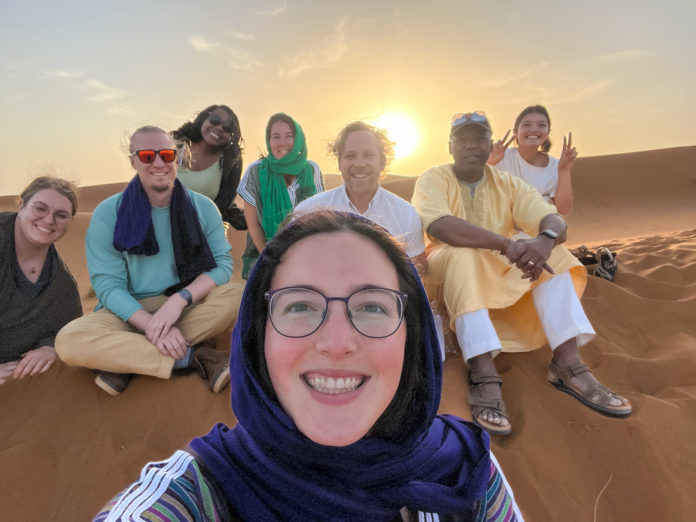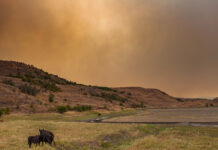Christian and Muslim students studying the different faith traditions learned alongside each other during a Mercer University study abroad and service-learning trip to Morocco this summer.
The 12 Mercer students, primarily from the McAfee School of Theology, participated in interfaith dialogue with their counterparts at Al-Akhawayn University in Ifrane, Morocco. It was the first time Mercer held such a program in the North African country.
“The idea was to talk about the motivations of the love of God and neighbor out of our two traditions,” said the Rev. Dr. Robert Nash Jr., who is the Arnall-Mann-Thomasson Professor of Missions and World Religions and serves as associate dean for the Doctor of Ministry program at Mercer. He led the trip with Dr. Nathan Myrick, assistant professor of church music in the Townsend School of Music.
To promote interfaith dialogue, students from the two universities participated in several activities that encouraged listening and understanding.
This included an interfaith hike through the Atlas Mountains where students from different religions walked in pairs talking about their faith and what motivated them to love God and their neighbor. Another activity involved students standing in circles and sharing their faith with each other by talking about their earliest religious memory and most meaningful religious experience.
“We live in a world that’s diverse,” Dr. Nash said. “Our tendency is to objectify the other, so this experience causes those we view as ‘other’ and different from us to suddenly become friends.
“And (now) when we hear ‘Muslim’ as Christians, we associate our experience with a friend whom we know and have talked with about their faith rather than just what we see on the news.”
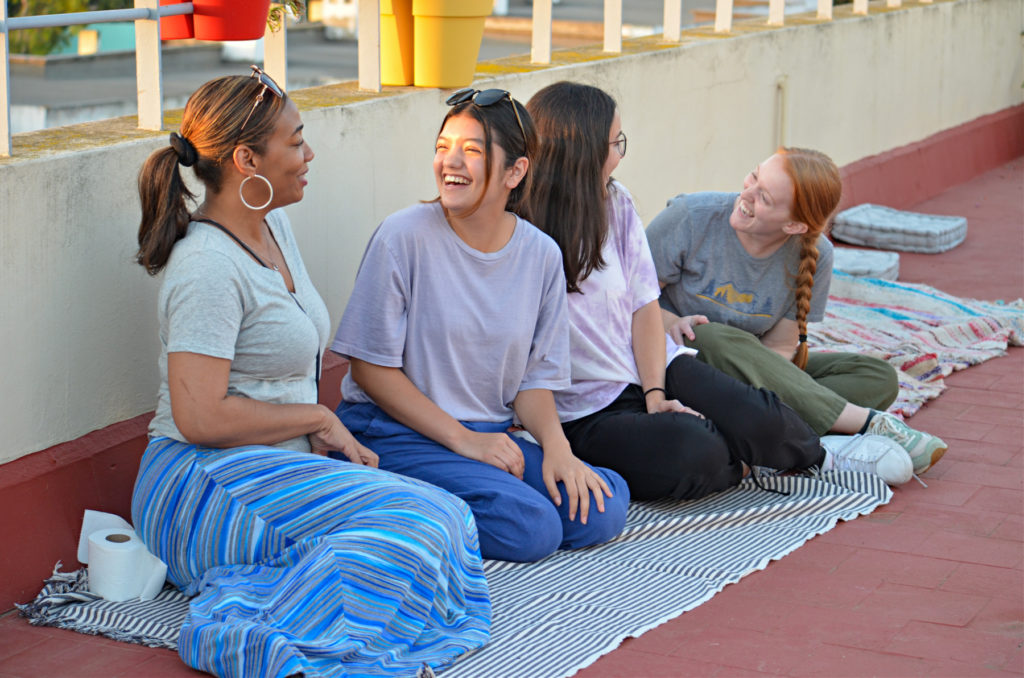
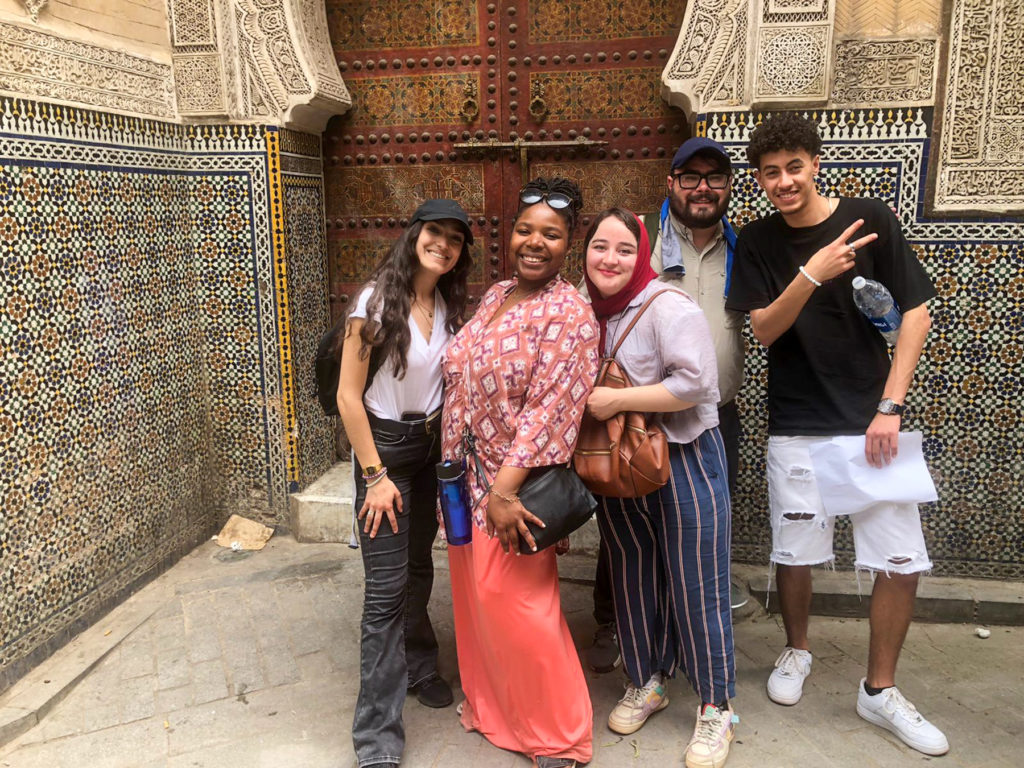
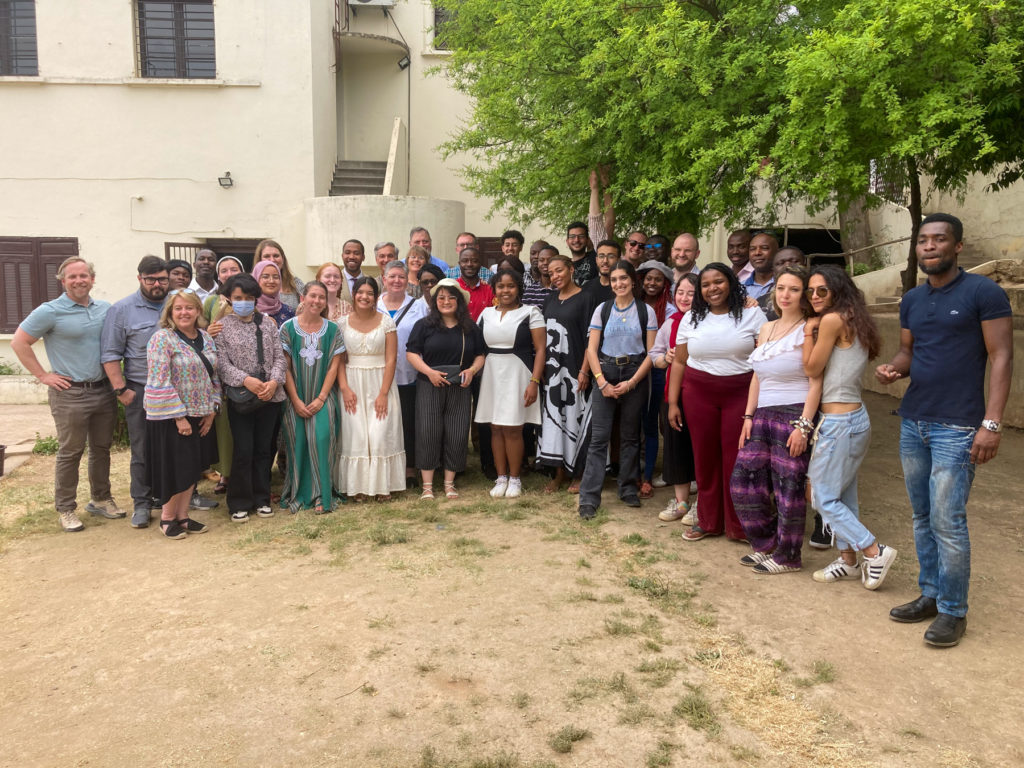
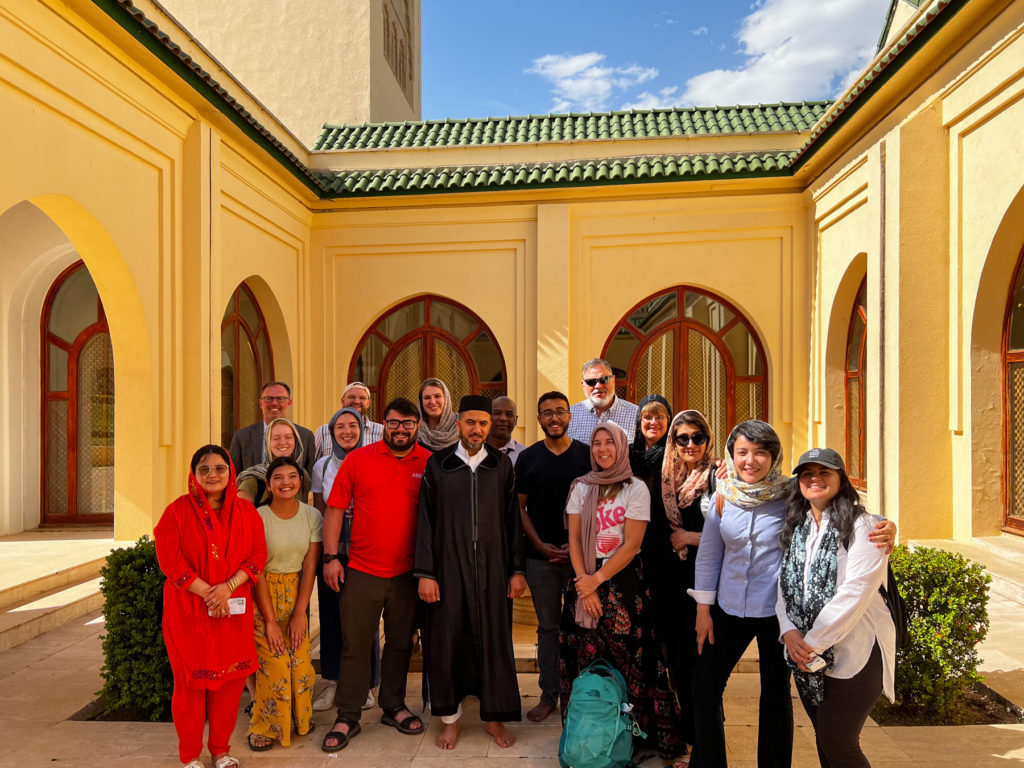
The Mercer and Al-Akhawayn students attended worship services at a church and mosque together, visited a monastery, and experienced the wilderness in the Sahara Desert. They also traveled to Fez, where students explored sites specific to Islam and those that shared in Islamic, Christian and Jewish traditions.
Through these experiences, the students “realized how much they had in common with their fellows from the other side of the world and a different faith confession,” Dr. Myrick said. “But also, they recognized how important a celebration of difference is.
“They’re not the same religions. They’re not the same faiths. But they don’t have to be antagonistic — and rather they shouldn’t — and our students were able to embody that in really beautiful ways.”
In addition, Dr. Myrick explored with students the idea of sacred sound and what constitutes a sacred sound based on faith and culture. They discussed what makes music or prayer sacred and what role it plays in people’s daily lives.
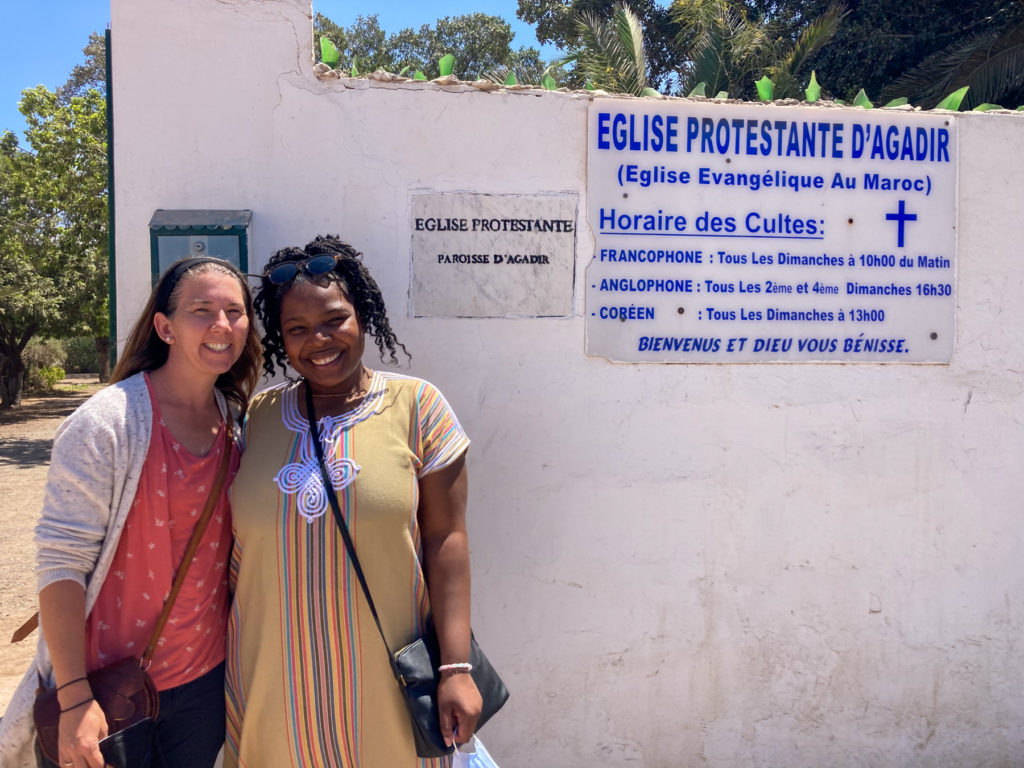
During the second part of the trip, the Mercer group had planned to partner with the Protestant church of Morocco to work with migrants in the country who were traveling from Sub-Saharan Africa to Europe. COVID-19 complicated their plans, but Mercerians were able to donate $3,000-$4,000 worth of personal protective equipment to migrants in Agadir.
Many migrants work in agriculture and are exposed to pesticides, so the donation of protective gear including gloves and masks with filters will help them do their jobs safely, Dr. Nash said.
Ashley Guthas, who is in the Master of Divinity program at McAfee, said the experience changed her life.
“We really had the opportunity to see how incredibly similar Christian and Muslims really are, and that was a beautiful experience,” she said. “Oftentimes, especially post 9/11, it seems as though we’ve been kind of conditioned to only see the differences or only highlight what is different, and I really appreciated the opportunity to draw close to these incredible people.”
Guthas said her favorite part of the trip was the night she spent in the Sahara Desert. The group took a 30-minute camel ride to their campsite, which included running water and air conditioning. Mercerians ate dinner with the Berber people of Morocco, who taught them how to play the drums.
“I personally felt safe and free in the desert in a way that I don’t think I’ve ever felt before. It was almost overwhelming to me,” Guthas said. “There was freedom; there was joy; there was peace; there was calmness. …
“We often think of the desert as this barren empty lifeless place, and I encountered the exact opposite.”
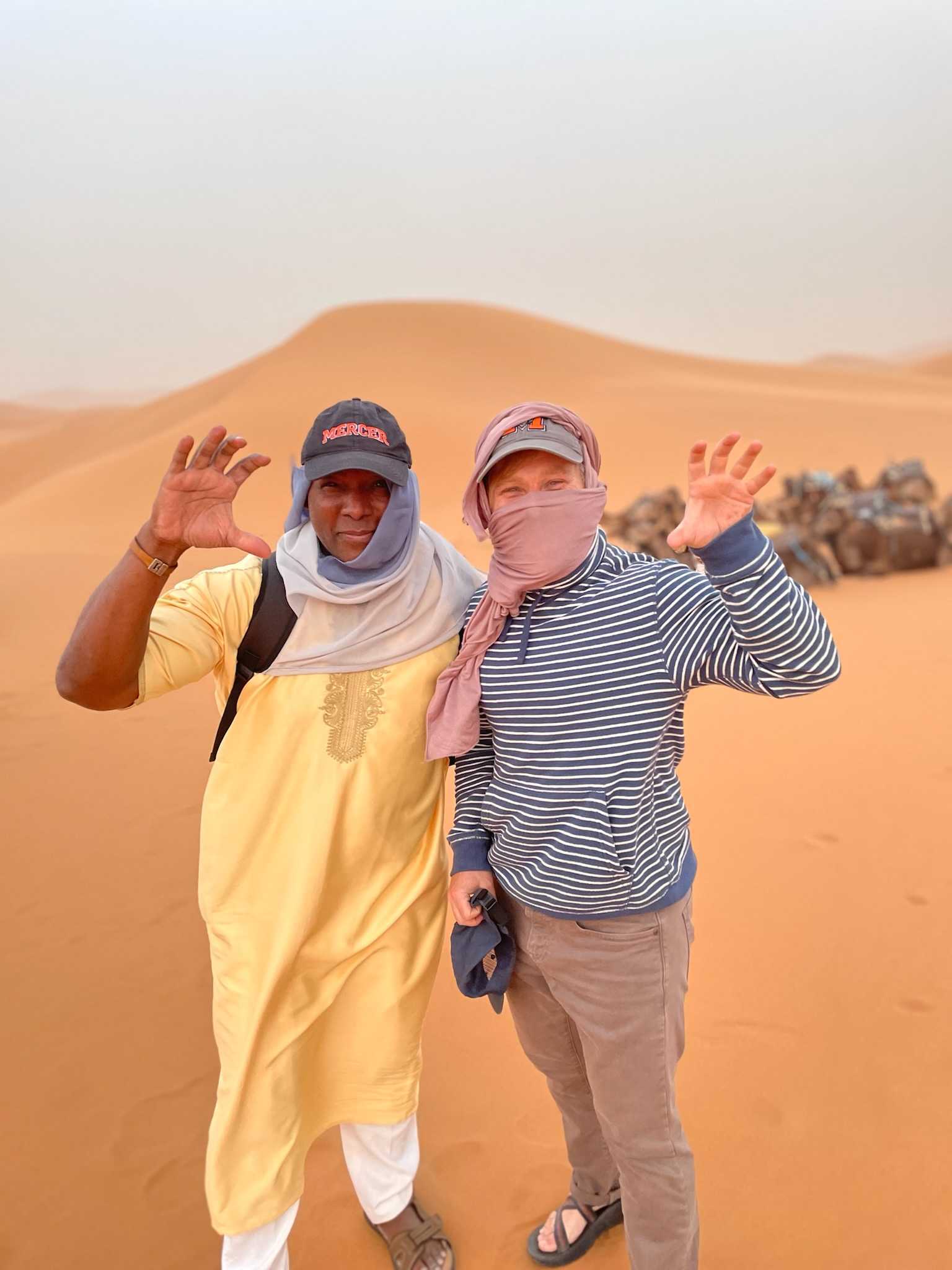
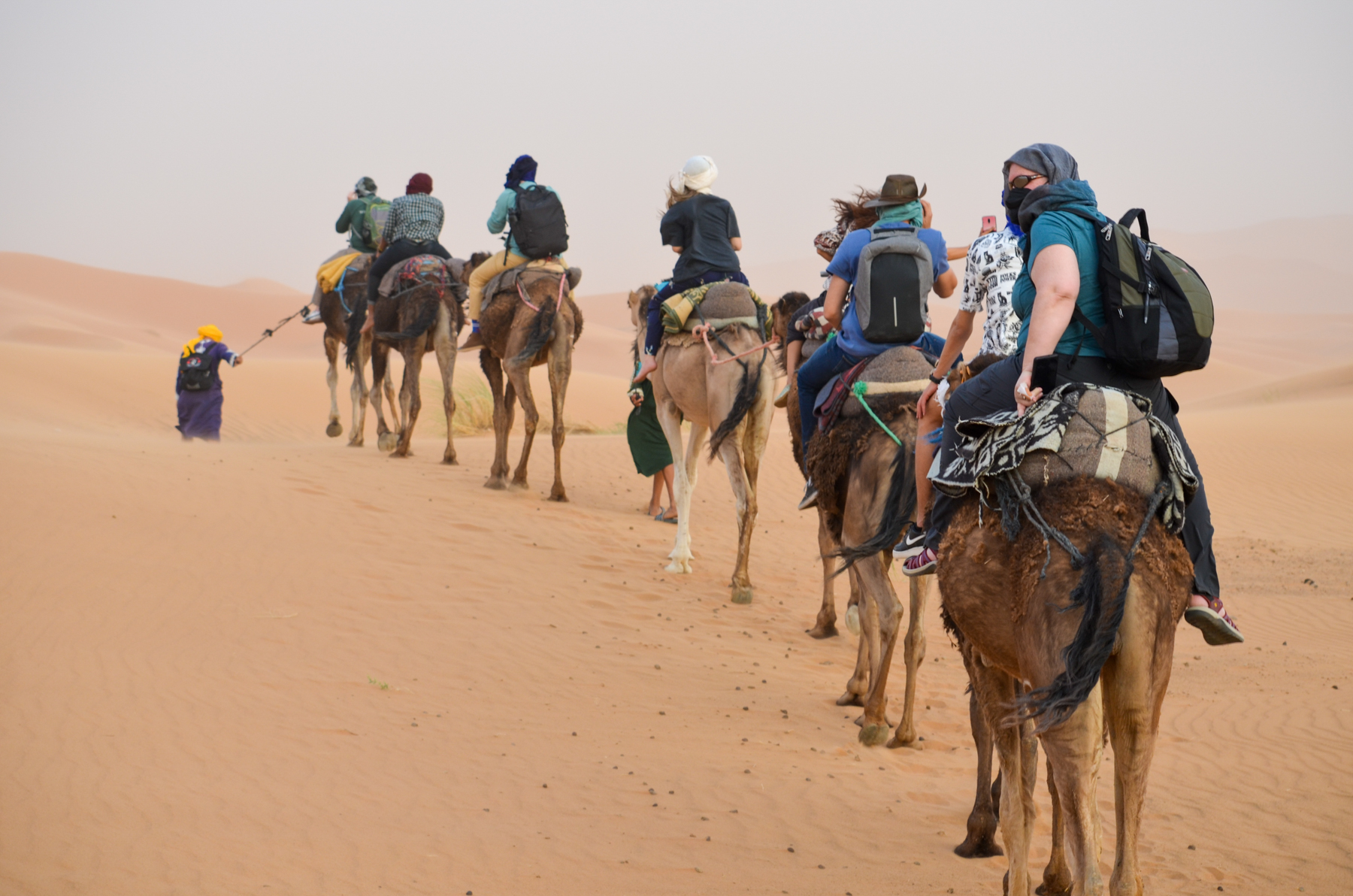
Bill Green, who is pursuing a Master of Divinity at McAfee, said the Al-Akhawayn students — who were from a variety of African countries and Afghanistan — were open and willing to share their culture and history.
He enjoyed the desert experience, as well as wandering the ancient cities of Marrakech and Fez, where he observed merchants conducting business the way they have for thousands of years.
“I learned that the world is much larger than I thought it was, but at the same time, it’s smaller because there are all these experiences that I’ve never had before and these people that I knew so little about,” he said. “But the closer I got, the more I learned about their experiences, and my world got smaller again.”
Tricia Etheridge, who is studying in the Master of Divinity program at McAfee, said the personal interactions she had with people in Morocco were the most meaningful to her — whether it was listening to the Al-Akhawayan students on campus, sharing a meal with a family on their farm, or hearing the stories of migrants trying to get to Europe.
“The interactions that we had with them were super personal and so authentic, and that was pretty extraordinary,” she said.

